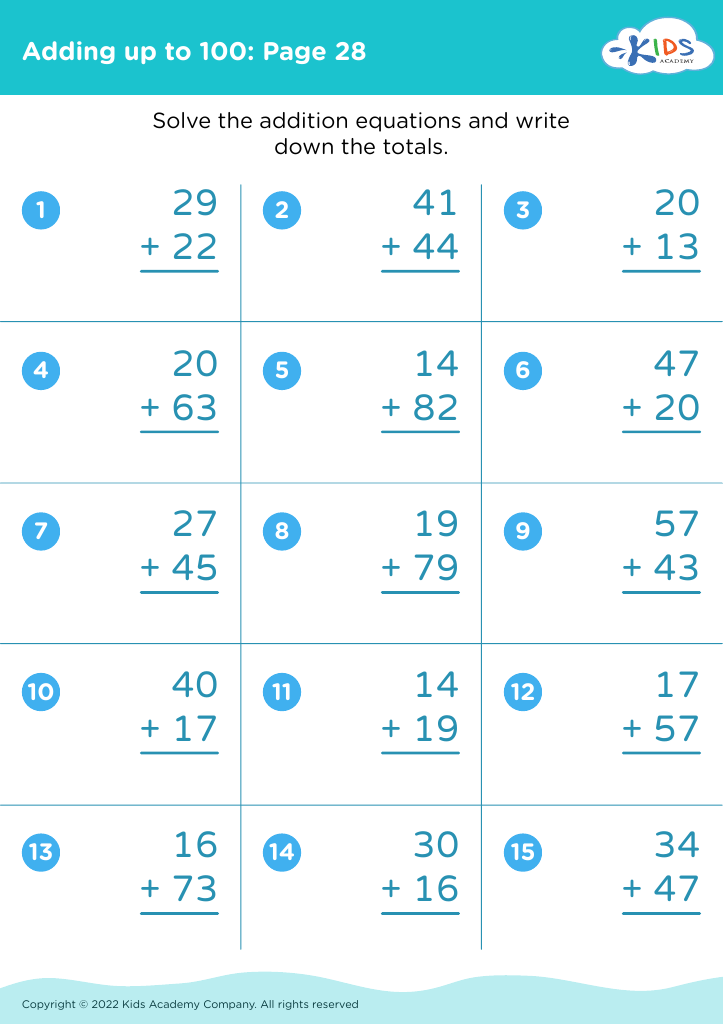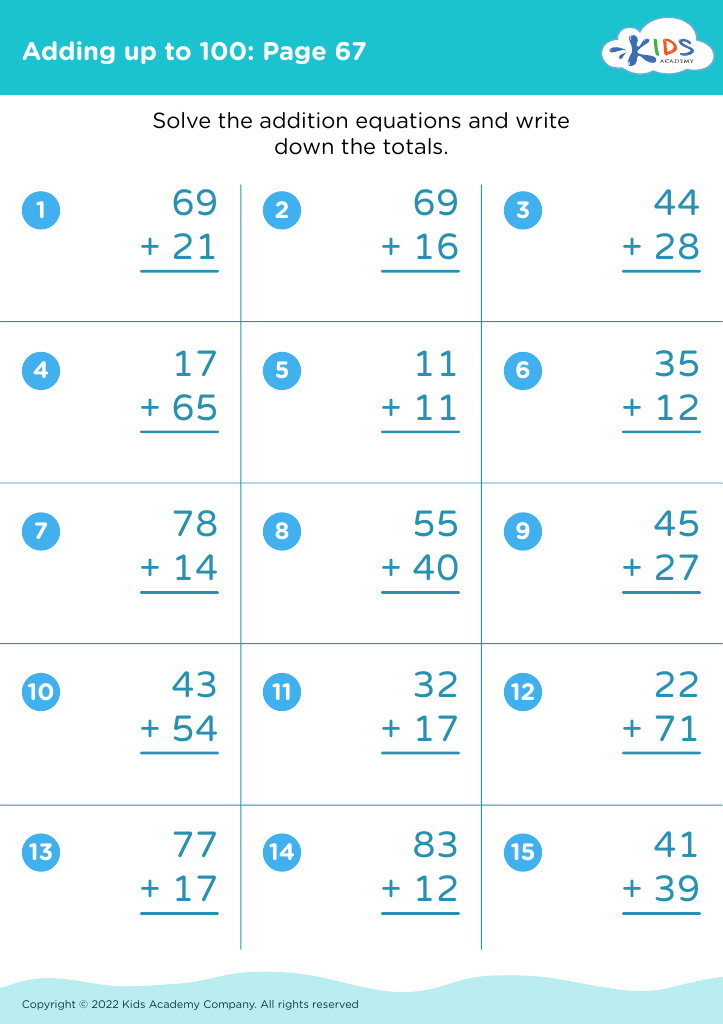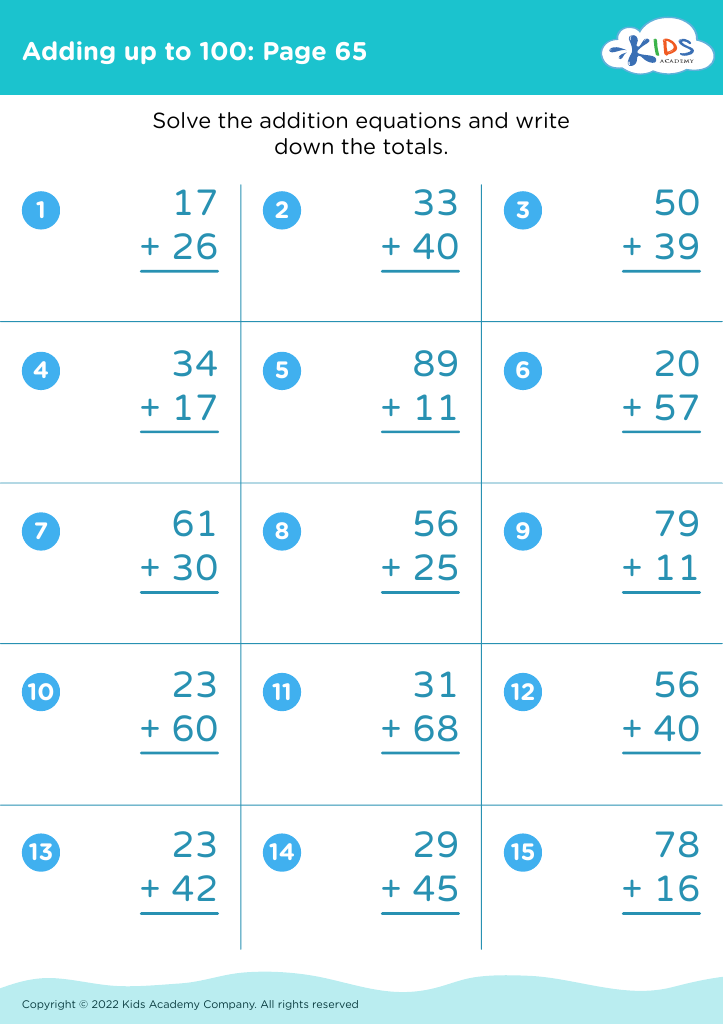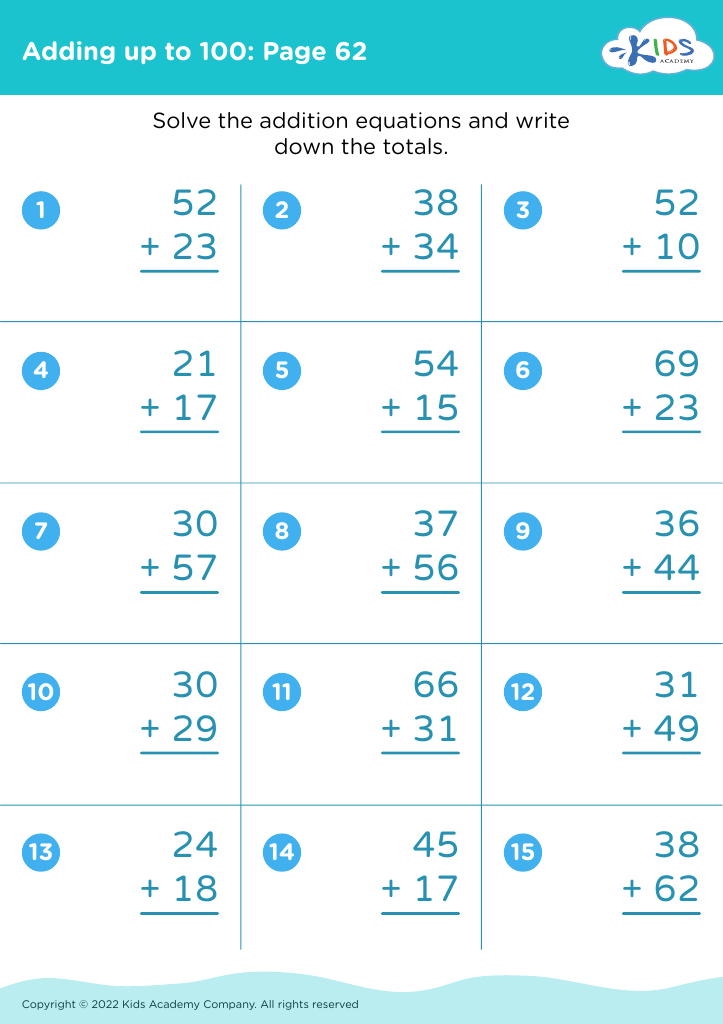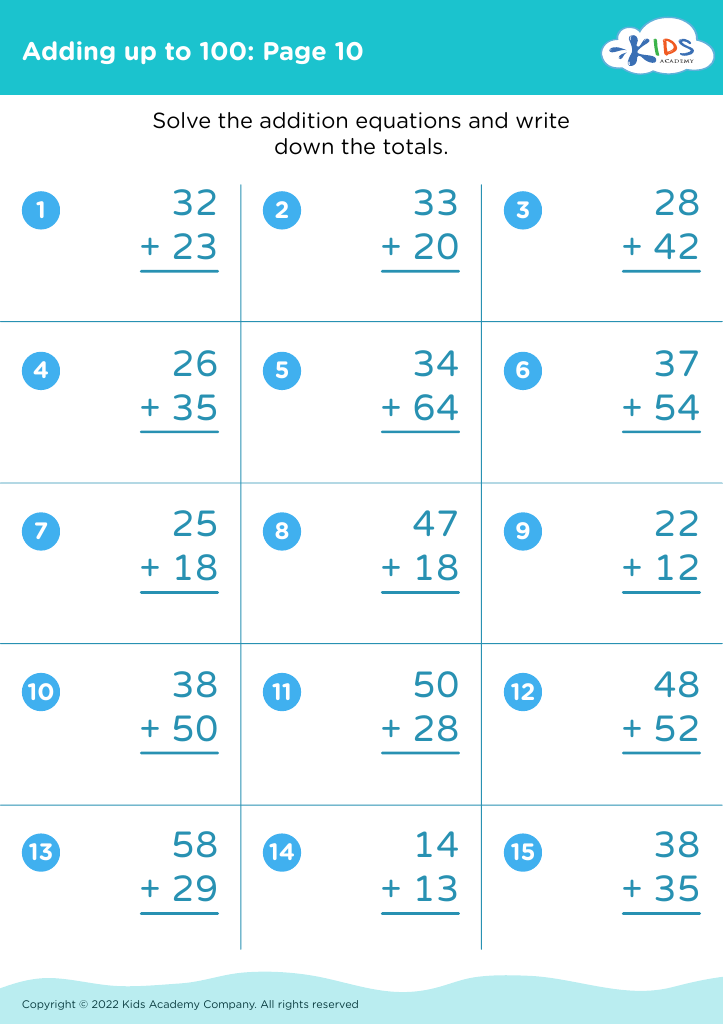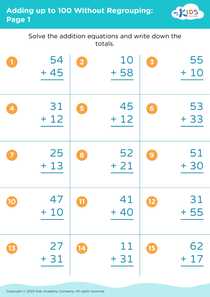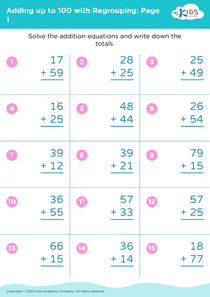Problem-Solving Skills Adding up to 100 Misc Worksheets for 8-Year-Olds
7 filtered results
-
From - To
Enhance your 8-year-old's math abilities with our "Problem-Solving Skills Adding up to 100 Misc Worksheets." These engaging, grade-appropriate worksheets are specifically designed to help young learners master the fundamentals of addition within 100. Through a variety of fun and challenging problems, kids will develop critical thinking and sharpen their problem-solving skills. Ideal for supplementing classroom lessons or homeschooling, these worksheets provide ample practice to build confidence and proficiency in math. Visit Kids Academy to access our comprehensive collection and support your child's learning journey with expertly crafted, interactive materials.
Developing problem-solving skills by adding up to 100 is a critical component of early education for 8-year-olds. This foundational math skill not only hones their arithmetic abilities but also enhances cognitive functions, such as logical reasoning and critical thinking. At this stage, children are at a prime age for absorbing new information, and mastering basic addition sets the groundwork for more complex mathematical concepts.
Parents and teachers should prioritize these skills because they promote a strong understanding of numbers, which is crucial for everyday activities and academic success. Strengthening problem-solving abilities also teaches perseverance and resilience, as children learn to approach challenges systematically and explore various solutions. This process builds their confidence and independence in tackling new problems, both inside and outside the classroom.
Furthermore, collaborative problem-solving exercises foster teamwork and communication skills, preparing children for social interactions and group-based tasks. Given the role of mathematics in nearly all aspects of life—from budgeting and shopping to understanding science and technology—early proficiency in problem-solving sets a child on a path to long-term educational and personal success. Thus, it is essential for parents and teachers to nurture these skills through engaging, age-appropriate activities that make learning enjoyable and impactful.
